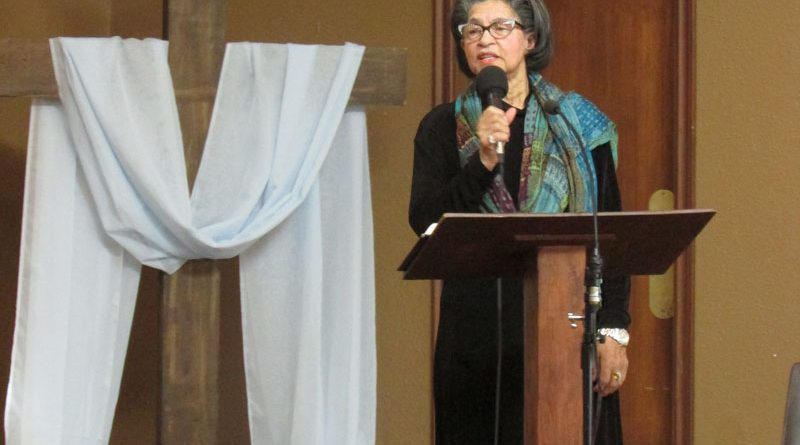Rosebud Church celebrates Black History Month
By Laureen F. Guenther Times Contributor


Laureen F. Guenther Photo
The Rosebud Chorale opened the service by singing the spiritual-style songs, Glory and Hymn to Freedom.
Guests Lonnie Saunders and Bob Leslie sang solos of I’ve Been Through Enough (To Know He’ll Be Enough For Me) and other spiritual-type songs.
Lonnie Saunders and Rosebud resident LaVerne Erickson led the congregation in singing call-and-response, including songs such as Carry Your Candle and Got Any Rivers You Think are Uncrossable?
David Snider of Rosebud gave a dramatized reading of the story of Mark Lewis, a Black man whose grandparents brought their family from the United States to Alberta in the early 1900s, when it was still part of the Northwest Territories.
LaVerne Erickson also presented a brief history of the settlement of Amber Valley and other predominantly Black communities in the Athabasca area, including a mention of Parson Henry Sneed, who was Lonnie Saunders’ grandfather.
Parson Sneed, born in Texas, had married Lizzy Jefferson, who was born in Indian Territory. Parson Sneed was working on the railroad between Oklahoma and Ontario, Canada, when he read in the newspaper that Canada was giving settlers land. At that time, in the United States, Black people weren’t permitted to be landowners, but Canada gave land to settlers, regardless of their skin colour.
In 1910, Parson Sneed organized his family and a group of other Black families to gather everything they owned and settle in the new community of Amber Valley, Alta.
Unfortunately, Parson and Lizzy Sneed didn’t live long after they came to Canada. Parson Sneed died of pneumonia in 1915 and Lizzy died in a house fire in 1918. But their eight children were settled in Canada.
Their eldest child, Elvida, born in 1903, married David Saunders, whose family had moved from the United States to Canada in 1910 when David was 10 years old. David’s father, William, made his living cooking breakfasts and suppers for those who worked the railroad going north to Fort McMurray.
Elvida and David Saunders had 17 children. Lonnie Saunders, Rosebud Church’s guest singer, was their ninth daughter and 16th child.
“I think it’s important for my history to be told because my history is as important as any other’s history,” Lonnie Saunders said. “Black lives certainly matter, and our diversity makes us who we are. We are a loving people who accept other cultures simply because we are all people, made by the same God.”
The first time Saunders came to Rosebud for a Black History Appreciation service, two years ago, she said someone had asked her if racial prejudice still exists and if it’s still in the workplace.
“I said yes, and I could have given him accounts from a friend of mine who works for (a government agency),” Saunders said. “Prejudice will be in this world as long as there is a world. (But) I know many people who would stand up on behalf of Black and (aboriginal) people without giving it a second thought.”
